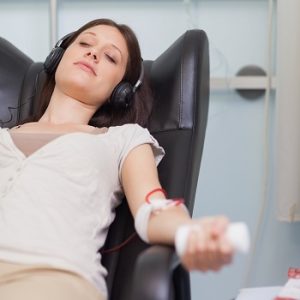
More evidence that low-calorie sweeteners are bad for your health
Studies show that artificial sweeteners can raise the risk of hypertension, metabolic syndrome, type 2 diabetes and heart disease, including stroke.

Whether it’s classical or hip-hop, music often feels like it has healing properties – and now scientists have proved that it does.
Most people undergo a surgical procedure at some point in their lives. More than 51m operative procedures are performed annually in the USA and 4.6m hospital admissions lead to surgical care in England. But the time after an operation is still a difficult one for patients and pain, discomfort, changes to regular routines and rehabilitation therapy are all common.
Current strategies for improving recovery tend to involve patient education and nutritional additives, which have been seen to reduce post-operative pain requirements and improve satisfaction levels. But despite a wealth of relevant studies supporting its potential in recovery, music is still not an everyday part of the post-surgical routine because information demonstrating its effectiveness has not been widely spread.
New evidence for an old ‘cure’
Using music to improve patients’ hospital experience has a long history, and its potential was recognised by Florence Nightingale. Music was first described being used to help patients during operations in a scientific paper more than 100 years ago.
» Evidence has long shown that music can help aid recovery from illness and surgery
» Music, unlike drugs is a non-invasive and safe and inexpensive way to improve patient well-being
» Studies show that the use of music post-operatively can reduce anxiety, pain and the need for pain-killers.
Compared to drugs, prerecorded music played through headphones, musical pillows or background sound systems can be a non-invasive, safe and inexpensive intervention that can be delivered easily in a medical setting. Music has frequently been investigated in the context of recovery from operative procedures and numerous trials have demonstrated positive effects on patients’ post-operative recovery.
My colleagues and I wanted to assess this evidence so that we could highlight the potential for music in surgical recovery. We found and analysed as many randomised trials on the use of music to improve post-operative recovery as possible, using a technique called systematic review.
Type of music doesn’t matter
In total, we found 73 trials involving nearly 7,000 patients and reviewed what they showed about the impact of music on common measures for post-operative care. These included pain, the need for painkillers, anxiety, patient satisfaction and length of stay. We also explored the patients’ choice of music, the timing of the intervention and whether general anaesthesia was also used.
Patients in the studies chose a wide variety of music styles, although they mostly all had a soothing quality. Researchers either used single types of music such as classical music, or gave patients a choice from a list of styles.
Delivery was often by music pillows, which broadcast sound at a volume low enough for only the people lying on them can hear, or with headphones but at a level so that patients could still communicate easily. Different trials tested music before, during or after operations or a combination, and when patients were awake or anesthetised. The duration of the music varied between a few minutes to repeated episodes over several days.
Natural painkiller
The evidence showed that patients were significantly less anxious and more satisfied after surgery if they had listened to music. They also needed less pain medication and reported significantly less pain compared with patients who weren’t played music. The type of music, patient choice and timing before during or after the surgery did not make much difference. And it even worked when patients were played music under general anaesthetic, although the effects were larger when patients were conscious.
It’s not clear how or why music has these effects but it may reduce the stress response in patients. Other possibilities are that it might work by distraction, by having something familiar and having something that is controllable by the patient.
We believe there is now sufficient research to demonstrate that music should be available to all patients undergoing operations. Patients should be able to choose the type of music they would like to hear. Some might prefer for religious reasons to listen to recitations or natural sounds.
How loud to play the music is still unclear but it shouldn’t be distracting to medical staff or other patients. Surgical teams may prefer patients to listen to their own electronic musical devices before the procedure or as soon as they arrive back onto the ward. If this can become routine practice, it could make the whole experience of an operation more enjoyable and, crucially, less painful.

Please subscribe me to your newsletter mailing list. I have read the
privacy statement